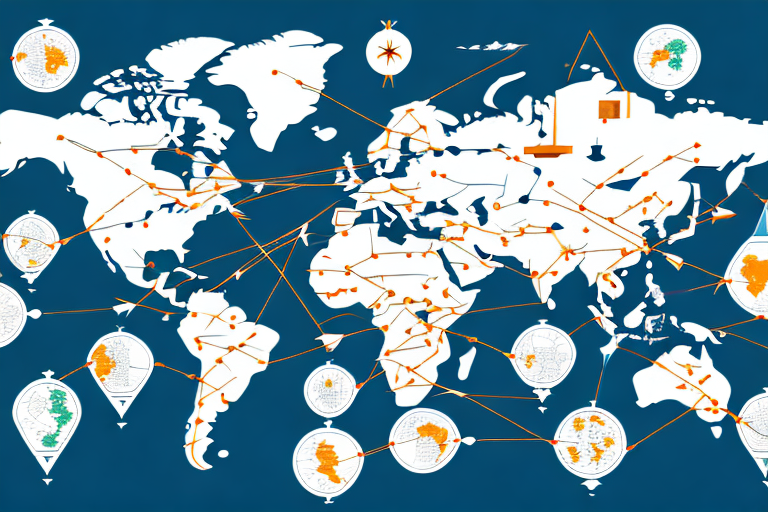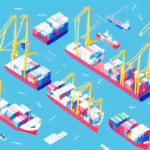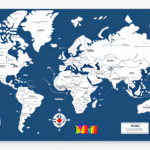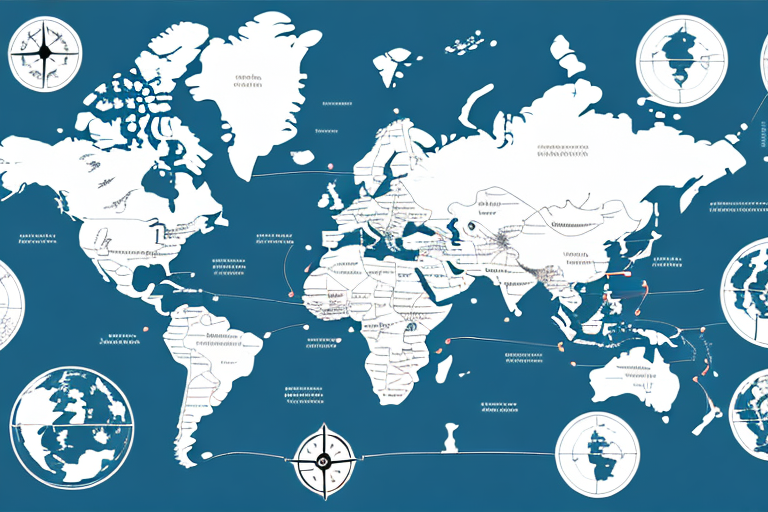Exploring the Benefits of a Foreign Trade Zone for Your Supply Chain
Foreign Trade Zones (FTZs) have been instrumental in international trade for over 80 years. Despite their long history, many companies still do not fully leverage the myriad benefits FTZs offer. This article provides a comprehensive overview of FTZs, their operation, and how they can optimize your supply chain, saving you time, money, and reducing logistical hassles.
What is a Foreign Trade Zone and How Does it Work?
A foreign trade zone is a designated area within the United States that is treated as outside U.S. customs territory, even though it is physically located within U.S. borders. This designation allows goods to be imported into an FTZ without immediate payment of import duties and tariffs. The goods remain in the FTZ until they are either exported or enter the U.S. market, at which point duties are assessed.
Foreign trade zones are regulated by the U.S. Foreign-Trade Zones Board and are typically situated near major transportation hubs such as ports, airports, and highways to facilitate efficient movement of goods.
Businesses utilizing FTZs can benefit from cost savings on import duties and tariffs, as well as streamlined customs procedures. FTZs also support manufacturing and assembly operations, enabling companies to take advantage of competitive labor costs and operational efficiencies within the United States. Overall, FTZs are a strategic tool for businesses aiming to expand operations and reduce supply chain costs.
How Can a Foreign Trade Zone Benefit Your Supply Chain?
Understanding how an FTZ can enhance your supply chain is crucial for maximizing operational efficiency and cost-effectiveness. Below are specific benefits that FTZs offer:
Cost Savings: Understanding the Financial Advantages of a Foreign Trade Zone
One of the primary advantages of using an FTZ is the ability to defer or eliminate payment of import duties and tariffs. According to the FTZ program, companies can import goods into an FTZ and only pay duties when the goods enter the U.S. market. If goods are re-exported, no duties are owed, offering substantial savings for businesses engaged in international trade.
Additionally, FTZs enhance inventory management by allowing companies to store goods without the immediate financial burden of duties. This flexibility enables businesses to optimize bulk purchasing and maintain higher inventory levels without cash flow constraints.
Streamlined Supply Chain Processes: Optimizing Your Operations with a Foreign Trade Zone
FTZs simplify supply chain logistics by reducing the time and administrative effort required for customs clearance. Goods within an FTZ do not require immediate customs processing, resulting in faster clearance times and reduced paperwork. This efficiency translates to lower administrative costs and quicker turnaround times for goods entering and leaving the FTZ.
Moreover, FTZs provide greater control over shipping schedules. Businesses can store goods in an FTZ and distribute them as needed, preventing the rush associated with immediate customs clearance and reducing transportation costs.
Increased Flexibility: Adapting to Changing Market Demands with a Foreign Trade Zone
FTZs offer unparalleled flexibility in supply chain operations. Companies can adapt their distribution strategies dynamically, responding to market fluctuations or unexpected disruptions without incurring additional costs or delays. This adaptability is particularly beneficial for businesses needing to scale operations quickly or manage seasonal inventory variations.
Improving Inventory Management: Managing Your Stock More Effectively with a Foreign Trade Zone
Effective inventory management is critical for supply chain efficiency. FTZs enable businesses to optimize inventory levels by providing control over when duties are paid and when goods enter the U.S. market. This control allows for better alignment of inventory with market demand, reducing overstocking and stockouts.
Navigating Customs and Tariffs: Simplifying Compliance with a Foreign Trade Zone
Importing goods into the United States involves navigating complex customs regulations and tariff structures. FTZs streamline this process by providing a secure environment for goods while compliance issues are addressed. This simplification helps businesses avoid costly penalties and ensures adherence to all relevant regulations.
Case Studies: Real-world Examples of Companies Leveraging Foreign Trade Zones for Competitive Advantage
Numerous companies have successfully utilized FTZs to enhance their supply chain operations. For instance, a leading automotive manufacturer reported a 30% reduction in logistics costs and a 20% increase in inventory levels by strategically using an FTZ. Similarly, a major electronics firm eliminated the need for Customs and Border Protection (CBP) inspections by storing products in an FTZ, thereby saving valuable time and reducing the risk of product damage.
Choosing the Right Location: Factors to Consider When Selecting a Foreign Trade Zone for Your Supply Chain
Selecting the optimal location for your FTZ is critical to maximizing its benefits. Key factors to consider include:
- Proximity to major transportation infrastructure such as ports, airports, and highways
- Availability of adequate warehouse space and facilities
- Labor costs and availability in the region
- Local regulations and incentives offered by the FTZ
Collaborate with experienced partners to assess your business needs and identify the most suitable FTZ location. This strategic selection ensures that your supply chain operations are aligned with your company’s growth objectives and logistical requirements.
Conclusion
Foreign trade zones are a powerful asset for companies seeking to optimize their supply chain strategies. Whether aiming to reduce costs, enhance flexibility, or streamline logistics operations, FTZs provide the necessary tools to achieve these goals. By leveraging the benefits of an FTZ, businesses can position themselves competitively in today’s global marketplace.
Additionally, FTZs contribute positively to local economies by attracting businesses, creating jobs, and stimulating economic growth. The enhanced access to global markets and the promotion of innovation and collaboration further bolster the regional competitiveness, making FTZs a valuable component of any comprehensive supply chain strategy.






















